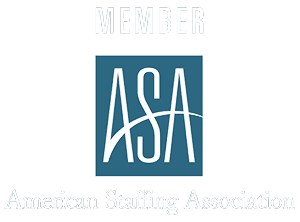It’s a familiar scenario: your staffing firm just landed a great new client, and now you’re tasked with placing more than a dozen workers. But every role comes with different positions, pay structures, and working conditions. Managing so many parts makes it easy to overlook crucial classification details, and that’s where things can go wrong. A small oversight today could lead to costly mistakes down the road.
The good news? Tax and compliance management doesn’t have to be overwhelming. With the right strategies and partnerships, staffing firms can simplify the process, avoid expensive errors, and stay focused on what matters most: growing their business and serving clients effectively.
The Risks of Tax and Compliance Management
Managing tax and compliance can seem straightforward, but the risks involved are anything but simple. Misclassifying employees, for instance, can lead to costly IRS audits, penalties, back income tax payments, and other fees, which can reach thousands of dollars for each violation. Here’s a breakdown of the key risks and what you need to watch out for:
Added Operational Costs from Correcting Compliance Errors
Staffing firms often handle different workers with different tax complexities. When there are errors in tax and compliance management, it becomes an expensive operational cost, potentially increasing your tax liabilities beyond initial estimates. For example, Uber Technologies and Lyft had to reach a $175 million resolution for misclassifying drivers.¹ Maintaining compliance is the wise way to save money for your firm.
When you understand and catch these risks early, you can avoid unnecessary costs and keep your focus on goals.
Time Spent Addressing Audit Requirements
Audits can disrupt your operations, with some going on for months. Audits drain your resources and reduce your productivity. So, what does this mean for your agency? The time and resources that should have gone to your growth goal are spent fixing audit requirements.
A strong tax and compliance system reduces the likelihood of audits. It’s not just about filing paperwork or meeting deadlines—it’s about creating a seamless system that ensures accurate worker classifications, maintains detailed records, and keeps your team ahead of regulatory updates. These steps reduce audit risks and strengthen your firm’s operations.
Potential Strain on Client Relationships
Compliance errors can do more than impact your financials, they can undermine the trust you’ve worked hard to build with your clients. Imagine the ripple effects. A missed classification or payroll error doesn’t just lead to penalties; it raises questions.
Questions about your processes, your attention to detail, and your commitment to your client’s success. In a competitive market, these doubts can tip the scales against you. Strong compliance practices show your commitment to delivering well to keep client relationships strong and long-lasting.
Increased Insurance and Administrative Expenses
When you continually fail compliance, your insurer may view this as a higher risk, leading to increased premiums for tax insurance coverage. Compliance errors are a liability to you through higher insurance premiums.
This added cost could be compounded by factors like the severity of the failed compliance and your firm’s history with similar issues can also influence future premiums.
Benefits of Partnering with Tax and Compliance Experts
Here’s what partnering with experts can do for your staffing agency.
1. Accurate Worker Classification
A partnership with tax and compliance experts allows specialists to assess roles with precision while avoiding misclassification errors. That’s not all, they also ensure compliance with labor laws and prevent future non-compliance.
When you partner with tax and compliance experts, you can be sure that your worker classifications are accurate and meet regulatory standards, which minimizes misclassification risks and penalties.
Read More: Navigating Employment Classification: How to Distinguish Between Employees and Subcontractors
2. Streamlined Payroll Tax Management
As a business owner, how do you simplify your payroll management, especially when you have diverse employee arrangements? With efficient payroll processing managed by experts, you spend less time dealing with administrative tasks.
For instance, an expert automating your filings and cross-checking calculations will ensure that all employment taxes are paid accurately and help identify potential tax credit opportunities you might have missed.
At the same time, the accuracy offered by these experts eliminates the risk of penalties due to missed deadlines.
3. Proactive Regulation Monitoring
Tax and labor laws are ever-changing and missing a key regulation can lead to fines. Compliance experts actively monitor legal and regulatory updates, ensuring your firm is always prepared. They also give you timely guidance, update processes, and adapt systems to align with new requirements before they take effect.
Practical Tips for Better Compliance Management
Achieving better compliance management isn’t about overhauling your entire operation in one fell swoop; it’s about making strategic improvements, one step at a time. Successful firms don’t just check boxes; they implement systems that ensure compliance across the board, monitor progress, and adjust when necessary. It’s about staying proactive, not reactive.
Here’s how you can take practical steps toward strengthening your compliance practices.
1. Regular Audits
Many staffing firms get comfortable with their current strategies. They stick to familiar tax and compliance methods. However, building better compliance management means being proactive to changes in compliance rules.
Instead of waiting for big changes to tax and compliance regulations, you should ask “How can I catch small issues before they grow into costly problems?’’ Regular audits are necessary if you want to catch and address these issues as soon as they arise.
Start by developing a quarterly review schedule that focuses on worker classifications, payroll processes, and compliance procedures. Look for risks specific to your staffing firm and use your findings to implement new processes. Assign a dedicated team or partner with experts to ensure these audits are thorough and actionable.
This audit lets you operate smoothly while reducing errors and building client’s confidence. When you notice small errors in your payroll and tax compliance early, you can adapt your processes to limit liability.
2. Train Your Team
Compliance is a team effort. If your staff isn’t aligned on key standards, even small oversights can create big problems. That’s why regular training is essential; it keeps everyone informed and on the same page.
For example, if you host a regular training session to cover worker classification rules, payroll systems, and legal updates, you give them the tools they need to handle the complex systems with ease. No, it doesn’t have to be theoretical.
A few touches of real-world scenarios and interactive elements are enough to make it practical and engaging, while resources like compliance checklists help reinforce learning throughout the year.
This is not just about reducing errors. Regular training is a nudge to a compliance-first culture where your team upholds the best practices. It’s a win-win: fewer errors and a workforce that’s proactive and prepared.
Read More: How to Build a Tailored Risk Management Strategy for Staffing Firms
3. Leverage Technology
Do you want to reduce some of your manual workload? Use advanced compliance management software to reduce manual workload, and minimize errors through automation. These tools can automate routine tasks like document tracking, tax filing, and reporting.
Doing this frees up time for your team. Your team can focus on satisfying clients rather than repetitive tasks. You also reduce the risk of human error and ensure consistent accuracy across processes. Using technology for your tax and compliance management lets your team focus on high-impact activities while staying on top of ever-evolving regulations.
4. Work with Trusted Experts
Partner with trusted providers to get innovative solutions perfect for you. They have specialized knowledge to guard your firm from costly errors due to tax and payroll compliance issues. Besides, partnering with experts allows you to focus on core business activities while ensuring up-to-date compliance and in line with industry standards.
Look for providers that have experience in the staffing industry and offer comprehensive payroll services tailored to your needs. Client testimonials and references will let you know how reliable and effective they are.
Enjoy peace of mind, knowing that compliance matters—such as tax regulations, payroll systems, and worker classification are being managed by trusted professionals. The goal isn’t to replace your team’s expertise but to free them to focus on building relationships and spotting opportunities.
Transform your tax and compliance management today
While tax and compliance management might not be the most exciting aspect of running a staffing firm, its importance cannot be overstated. By adopting proactive strategies and partnering with trusted experts, you can mitigate risks and ensure your business remains on solid ground.
Now is the time to take a fresh look at your processes and explore partnerships that will safeguard your firm’s success. Signature Back Office Solutions has been helping staffing and recruiting firms thrive with streamlined processes. Contact us today and experience the difference of working with a partner who truly understands your needs.
Reference
- Uber, Lyft to Pay $175M in Massachusetts IC Settlement. www.staffingindustry.com/news/global-daily-news/uber-lyft-pay-175m-massachusetts-ic-settlement.





